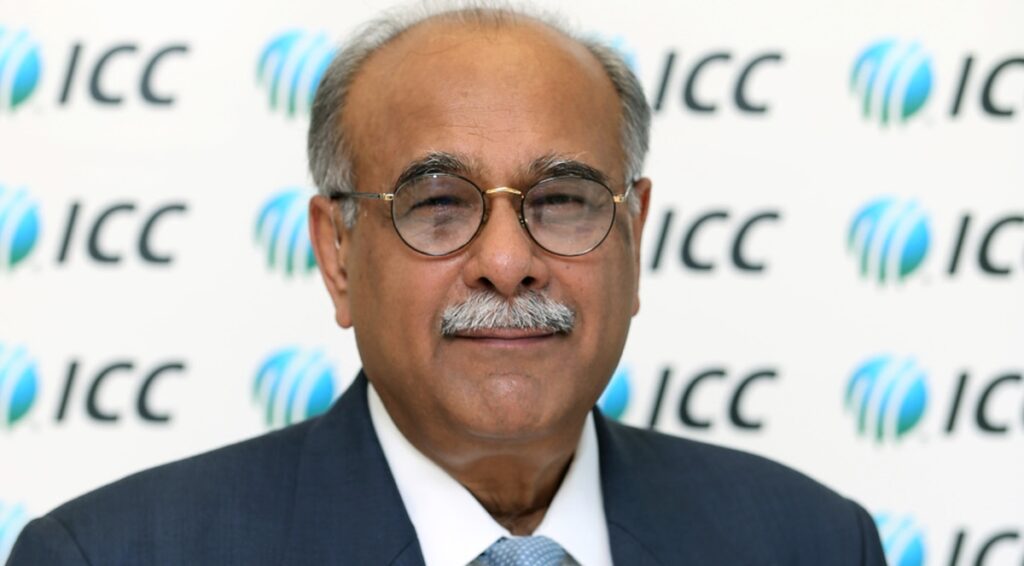Pakistan Cricket Board (PCB) is unhappy with the new ICC revenue model and asking for more details about the same. The International Cricket Council (ICC) has proposed a new revenue distribution model for the 2024-27 cycles, which is likely to be discussed in its board meeting in June.
PCB chairman Najam Sethi said in a statement that they agreed on India getting the largest share of revenues but they are not happy with the model and need a detailed clarification regarding the same. With this, Pakistan become the first country to express its unhappiness and sought clarification of the model.
The PCB head Nijam Sethi said in a statement that they will not approve the model until they receive a detailed clarification of the model. However, the model isn’t yet finalized and supposed to be approved by June.
In the proposed model, BCCI is expected to receive the largest share of revenues, which is approximately 38.5% of ICC’s annual projected earnings. England and Wales Cricket Board (ECB) is likely to receive a 6.89% share followed by Cricket Australia (CA) with 6.25% and PCB with 5.75%. The 88.81% of the share would be distributed among 12 full members of the ICC, whereas the rest would be distributed among 96 associate members.

image source:https://supersport-cms-prod.azureedge.net/media/1k5k0sbe/najam-sethi-230516-g1050.jpg?width=1200&quality=100
With India receiving an estimated 80% of ICC revenue, the PCB head questioned how the shares have been determined by ICC’s Finance and Commercial Affairs Committee, headed by BCCI secretary Jay Shah. He added, “There is no doubt that India should get more, but how the table being developed.”
On Monday, an article was published in The Times newspaper, according to which, former England captain Mike Atherton wrote that this model would only deepen the game’s existing inequality and international cricket would become less competitive. He criticized the model and said that the money is going where it is needed the least.
Atherton further said that no one would dare to challenge the model as all other countries are witnessing a leap in revenue. He added that the revenue model is primarily based on the sponsorship share and revenue stream from TV broadcast rights, and India is a leading market for the same.
The Cricketer turned journalist Atherton further wrote that India, Australia, and England are the countries that have competed most effectively in the ICC knockout competitions over the years and enjoyed an inherent advantage of hosting key events. Atherton believes that such countries are already exploiting the advantage through their domestic television revenue streams.
Atherton wanted to express his concern about the countries that produce a lot of talented cricketers but will get fewer shares for certain reasons. For example, West Indies produces a lot of talented cricketers, but broadcasters are less interested because of an assortment of island nations, which is not a commercially viable destination for broadcasters.
The well-known critic of the BCCI, Atherton, expressed his concern about inequality in cricket and improper strategies from ICC’s side. In his article, he wrote that careful strategies need to be made to create healthy competition.
